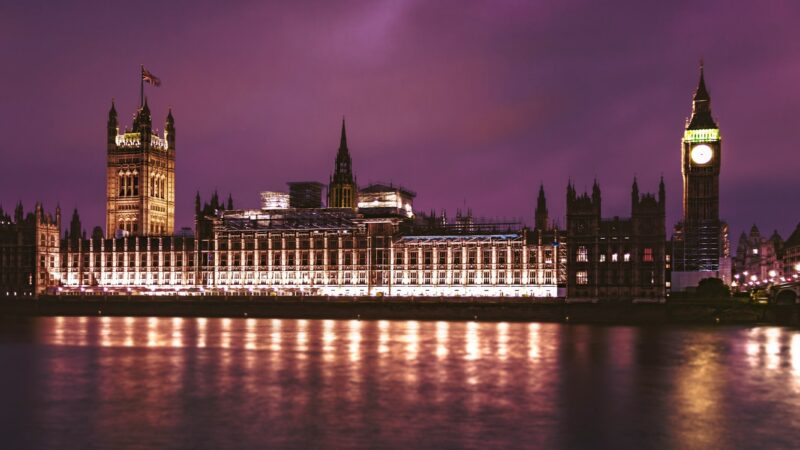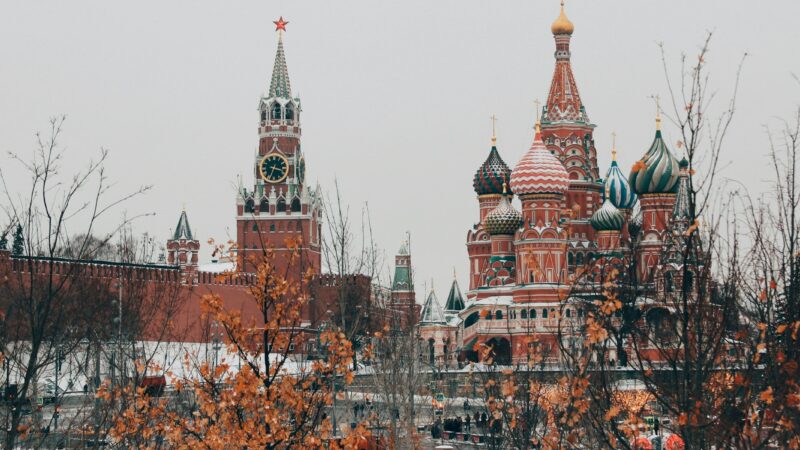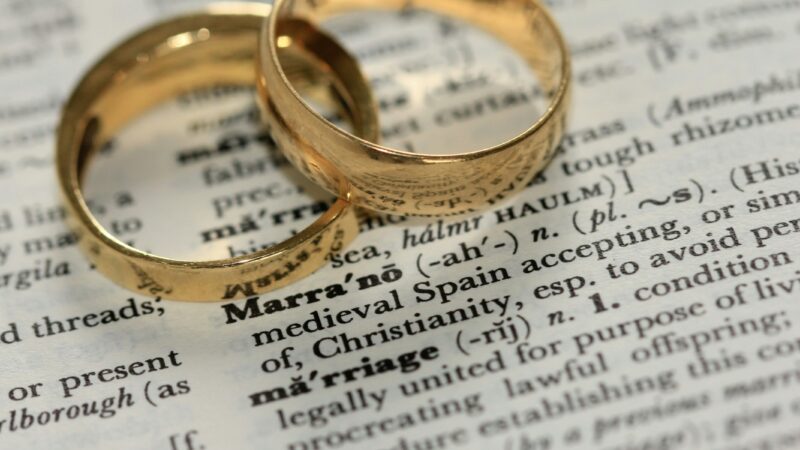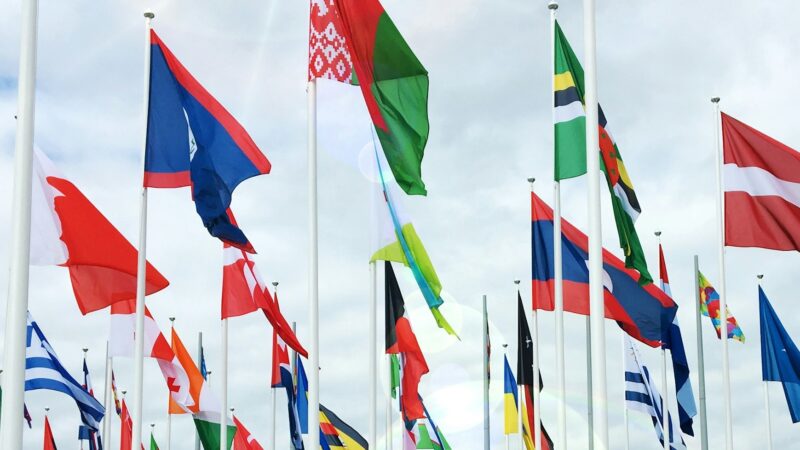On Truth and Democracy
O Tempora, O Mores (L., “Oh the times, Oh the customs”), is an apothegm attributed to Marcus Tullius Cicero (106 – 43 BC), a Roman statesman, attorney, philosopher, and scholar. In his First Oration against Catiline (63 BC) that he delivered in the Roman Senate, Cicero deplored the sorry condition of the Roman Republic, and particularly the Roman citizen, Catiline, who had conspired to foment an insurrection, intended to overthrow the Roman government and Cicero himself, who was at that time serving as the Head-of-State.
The perspectives expressed by Cicero could be ascribed to the sorry state of the virulent political climate and the dysfunctional political parties in our society, which have become dystopian and farcical for the following reasons.
First, it and they have devolved into cults of personality (cult, L., cultus, “worship,” “homage,” “devoted attention to a person or thing”) populated by sycophants (Gk., sycophantes, L., sycophanta, “informer,” “slanderer,” “servile flatterer,” “show the fig” [a vulgar gesture]).
Second, fueled by the toxicity of an unbridled social media, the raison d’etre (Fr., “reason for being”) of many politicians has become self-aggrandizement and power, to the determinant of public service and the commonwealth.
Third, rather than deliberate the substance of issues, they rant, demonize their critics, and employ every fallacy of argumentation in their rhetoric, most frequently argumentum ad hominem (L., “argument against the person”).
Fourth, more willingly than seeking common ground and common cause, they resort to demagoguery, contentiousness, mendacity, litigiousness, and extremism.
Fifth, they are barren of any discretion, decorum, propriety, civility, and self-control.
And sixth, their hypocrisy is unbounded, as they deny any allegations against them and divest themselves of any responsibility or accountability, by assuming a posture of victimization, devoid of any semblance of shame, guilt, remorse, or contrition (“I have done nothing wrong;” “I am innocent;” “It’s politically motivated;” “It’s a witch hunt”).
Collectively, it and they could be described metaphorically as a “ship of fools.”
Das Narrenschiff
Sebastian Brandt (circa 1457-1521) was of Germanic heritage and earned a doctoral degree in canon and civil law from the University of Basel. He served as Imperial Counselor, Judge, and Chancellor under the Holy Roman Emperor, Maximilian I (1459 – 1519). His most famous monograph, written as a humanist and satirist, was entitled Das Narrenschiff (Gr., “ship of fools”) (1494). Allegorically, it railed against the hypocrisies, weaknesses, political intrigues, and vices that were manifest during his lifetime. The author wrote that the ship was laden with and steered by fools. It wandered the ocean aimlessly, but by happenstance sailed to Narragonia, where they encountered Grobian, the patron saint of vulgar and coarse people.
To paraphrase the motif of the allegory, the author described the shipmates and crew as deranged, demented, frivolous, and oblivious; who were floating with the prevailing winds; and who were unhinged, unanchored, and unmoored. The author argued that they were in desperate need of statesmanship and leadership, to restore the ordinance and rule of reason and the ordinance and rule of law, grounded in truth, virtue, excellence, sound judgment, ethicality, and morality. The allegory is remarkably descriptive and prescient of the contemporaneous political climate and the political parties in our society.
The Past is Prologue
William Shakespeare (1564-1616), an English playwright, poet, and actor extraordinaire, in his tragicomedy The Tempest (1610-1611) wrote:
“Whereof what’s past is prologue, what to come,
In yours and my discharge.”
Dialogue between Antonio and Sebastian; Act 2, scene 1, lines 253-4
One interpretation of that dialogue is that what had previously happened set the stage for what will follow, and will be the stuff of which our greatness or our fallenness will be made and measured. A cynical interpretation of that dialogue is that we will remain mired in the improprieties, imperfections, misinformation, and disinformation of the past. That notwithstanding, despite the dysfunction, farce, and fantasy that pervades the current political climate and the political parties in our society, both can be mitigated by a courageous, resolute, and willful intent. Consider, in that regard, the Four-Way Test.
The Four-Way Test
The Four-Way Test of the Things We Think. Say, or Do, is an ethical and moral code for personal and professional conduct and relationships. It was composed in 1932 by Mr. Herbert J. Taylor (1893-1978), a business executive and civic leader. It was adopted by Rotary International in 1943, as a standard and a code of conduct by which all communication and interpersonal behavior should be measured and judged.
When we hear or read an assertion in whatever venue, includingsocial media, it must always be analyzed rationally, logically, and skeptically, to discern its validity. The Four-Way Test is applicable in that regard:
- Is it the Truth?
- Is it fair to all concerned?
- Will it build good will and better relationships?
- Will it be beneficial to all concerned?
Common sense, prudence, and temperance dictate that if the assertion violates any of those tenets, that it is invalid; that it must be rejected; and that it must not be repeated, disseminated, or propagated.
Certainly, it may be advisable to research any assertion via other sources to confirm or refute its validity. Certainly, each of us enjoys freedom of speech/opinion, freedom of conscience, and liberty of choice. Nevertheless, those freedoms and choices imply a responsibility and an obligation to ensure that the assertions and our responses to them are truthful and valid. The intent of such an analysis is to preserve the integrity, honesty, veracity, wellness, health, and safety, of ourselves, our neighbors, our communities, and our commonwealth.
Audent cognoscere veritatem (L., dare to know the truth”).
It is incumbent upon each of us to apply due diligence upon public officials and proper vetting of their assertions. We must critically inquire of and critically analyze the credibility of those individuals and the validity of their assertions. Our allegiance to and support of them must be rational, justifiable, and meritorious (L., meritorious, “deserving of reward,” “worthy of praise or honor”), and not irrational, vacuous, and meretricious (L., meretricious, “pertaining to a harlot,”). Fellow citizens, ubi sumus itiones? (L., “where are we going?”). Abraham Lincoln (1809-1865), attorney-at-law, statesman, and the Sixteenth President of the United States of America, at the Illinois Republican State Convention in Springfield, Illinois, in 1858, paraphrased a citation from Holy Scripture — a house [nation] divided against itself cannot stand. Liberty, freedom, and democracy require a united, virtuous, informed, and engaged citizenry. With resolution and diligence, such citizens could dramatically transform the political climate and the political parties in our society by acceptance and application of the Four-Way Test.
By way of summary, the following quotation is very apropos:
“It was the best of times, it was the worst of times, it was the age of wisdom, it was the age of foolishness, it was the epoch of belief, it was the epoch of incredulity, it was the season of light, it was the season of darkness, it was the spring of hope, it was the winter of despair, we had everything before us, we had nothing before us, we were all going direct to heaven, we all going direct the other way – in short, the period was so far like the present period, that some of its noisiest authorities insisted upon its being received, for good or for evil, in the superlative degree of comparison only.”
Preface, A Tale of Two Cities (1859), Charles Dickens (1812-1870)










The Migratory Ratchet
To say Britain has just entered a recession is slightly disingenuous, notwithstanding the jargon and semantics of economists and journalists. Whilst GDP has dipped for a second consecutive quarter, GDP per capita has been contracting for seven quarters straight. Having dropped throughout every quarter of 2023, and most quarters of 2022, Britain is enduring the longest uninterrupted decline in GDP per capita since records began in 1955.
Compounded by the fact that Britain’s GDP would’ve declined further without the unprecedented amount of immigration experienced throughout 2022 and 2023, it’s abundantly apparent that the UK economy is a ponzi scheme; an artifice sustained through short-term economic benefits to the long-term detriment of the nation, offset by additional short-term benefits and so on. Even when Britain’s economy grows, having experienced anaemic growth throughout most quarters of the same period, it renders no discernible or substantive benefit to the average Englishman.
The benefits of this arrangement are exclusively experienced by politicians and corporations. The former is given a straightforward and politically convenient means of construing the impression of prosperity, of making Line Go Up, while the latter has access to an ever-replenishing pool of cheap and flexible labour; one which suppresses wage growth, burdens national infrastructure, and induces demographic problems across British society. Truly, the Potemkin School of Economics.
However, courtesy of the unprecedented and largely non-EU-driven spike in immigration following Covid, a lot of anti-immigration positioning has been reconstructed around this new normal. This isn’t entirely bad. After all, people deserve to know why immigration is increasing, despite longstanding public demand for it to significantly decrease, especially while its contemporaneous.
However, the problem I foresee, one which I see flickers of in right-leaning political commentary of all kinds, is the acquiescence to previous levels of mass immigration. You know? The days when net migration was running at a sensible 200,000, when a greater proportion of arrivals were high-earners from the EU in possession of illustrious Skillsets; the days when immigration coincided with increases in GDP and GDP per capita, putting White British people on-track to becoming a minority by 2066, rather than 2040.
As everyone should know by now, the immigration debate is fundamentally a concern about displacement, one which is forced to disguise itself through Legitimate Concerns, such as Parliamentary Sovereignty, Small Boats, Control, and so on. As such, given immigration salience is making a post-Brexit return, there will be attempts to force those concerned about demographic displacement to re-disguise their concerns in a way the system is prepared to officially tolerate.
I refer to this as The Migratory Ratchet, the process by which previous waves of migration are accepted to justify opposition to present waves of migration, and previous instances of ethnic displacement are accepted to justify opposition to present instances of ethnic displacement. The Migratory Ratchet operates on the basis that the quantity and quality of present migration is different to previous migration, and that recognising these differences must be the basis for immigration control.
This is not to say there aren’t quantitative and qualitative differences between forms of immigration. Nor is to say that it is always wrong to make such distinctions. Rather, it refers to the use of these distinctions as a political manoeuvre to re-politicise mass immigration under a system which seeks to depoliticise it as much as possible, and how this coincides with the system’s desire to perpetuate mass immigration in the long-term by making short-term concessions to immigration restrictionists.
The most prominent distinctions separate migrants between those on big boats (legal) and those on small boats (illegal), those with skills and those without, those coming in their tens of thousands and those coming in their hundreds of thousands, those who give and those who take, those who bring dependants and those who are dependants themselves, those who are white and those who aren’t, those who are (supposedly) Christian and those who aren’t.
By using these distinctions as proxy for nationalist politics, under prevailing ideological pressures which oppose nationalist politics altogether, one crafts a wedge which can be assimilated into the operations of the ratchet, allowing the system to adapt to present dissatisfaction. These so-called Legitimate Concerns, transform fundamental political questions of mass replacement into managerial caveats, summarised by the aforementioned distinctions, which merely refine the process as to make it less irritable to the common Englishman.
I’m doubtful Starmer’s inevitable premiership will change much, although I can envision a scenario in which he makes concessions to the Legitimate Concerns of immigration restrictionists; maintaining recently introduced regulations on bringing dependants, reducing illegal channel crossings (presumably by providing Safe and Legal routes), even placing more stringent barriers on foreign students, whilst increasing work permits at a similar or greater rate to the outgoing Conservative government and instating economic policies which reduce the intake of the cheapest of cheap foreign labour.
In summary, The Migratory Ratchet will keep turning. The least defensible externalities will be suppressed in a superficial show of strength, briefly demobilising the right, who will then express their outrage that net migration is pushing a million, instead of being controlled to a select few hundred thousand.
This wouldn’t be the first time this has happened. It is widely and incorrectly presumed that mass immigration began with Tony Blair, de facto chief advisor to the incoming Prime Minister, whose Institute for Global Change is pressuring the incoming Labour government to increase immigration for the sake of “Growth, Growth, Growth”.
Mass immigration as we understand it began with Blair, but mass immigration itself precedes New Labour. Britain has incurred large movements of people, even instances of replacement migration, before and after 1945 – that is, official Year Zero for Modern Britain – which now look small compared to recent intakes. Keep in mind: Britain basically had net zero migration from the end of WWII up until the early 1980s. Even with net negative migration, Britain experienced large influxes of people, the likes of which altered the country for generations.
On paper, 19th century Irish immigration is dwarfed by 21st century immigration, but it remains fact that the consequences of such immigration were vast and remain with us, such as turning Liverpool and Glasgow into hotbeds of anti-English sentiment, having largely displaced their native populations, and altering the face of trade union politics; from a tendency dominated by Englishmen trying to shield against the import of cheap Irish labour to one dominated by Irish surnames, infused and aligned with ethnic “anti-imperialist” politics.
On paper, the influx of Russian Jews at the cusp of the 20th century is dwarfed by the post-Covid spike in immigration, but this still led to ghettoization and the displacement of the native population in various urban areas; a trend that has continued well-into the 21st century as other foreign diasporas have set-up shop, bringing their grievances with them – infamously, something the centre-right can only identify as bad when it affects more settled diasporic communities in Britain – while Englishmen are pushed further and further into the surrounding shires.
The UK’s Somali-born population, one of the most financially and legally burdensome subdivisions of Britain’s foreign-born occupants, making them something of a lowest common-denominator in discussions about immigration, mostly arrived in the 1980s following the outbreak of civil war. This was merely one of several movements into the UK which occurred throughout the same period. Indeed, many rightists seem to forget (deliberately or not) that the first sustained increase in migration after WWII took place throughout the premierships of Thatcher and Major.
Boston, the most Eurosceptic place in the UK, is also the most Polish, having endured a major influx of Polish migrants throughout the early noughties; a transformation which was encouraged by the UK government following the accession of ex-Soviet countries to the EU. Needless to say, honouring the spirit of Brexit and rehabilitating mass movement from Poland as an acceptable mode of migration are mutually exclusive political convictions.
Nobody with any sense, or sincere nationalist principles for that matter, would look to such times and instances as the contextual basis for a “sensible” immigration policy. Alas, the centre-right believes one must implicitly concede to these instances of replacement to make incremental progress in resisting larger and renewed waves of migration and the various knock-on effects.
On the surface, it appears to be a pragmatic application of our principles, but nothing could be further from the truth. In reality, it is an implicit but unequivocal surrender of the nationalist framework for a moderated globalist framework; a substitution enacted under the bizarre assumption that as things get worse, our stated aspirations need to become less radical. Like our current leaders, whose short-termism is well-documented, it constitutes sacrificing long-term struggle for short-term gains to be offset by developments in the near future. Sound familiar?
It is one thing to find newer, more effective ways to express old aspirations, but this cannot be mistaken for substituting our aspirations altogether. Indeed, if the migratory ratchet was to make another full rotation, it follows that we should find ourselves in a new alliance with non-Anglo whites and “Model Minorities” (high-earners, high-achievers, more Westernised, etc.) marching in lockstep against “Third Worlders” – that is, exclusively the MENA/PT countries and sub-Saharan Africa.
As some have already noticed, talk of England as an Anglo-Saxon country has practically ceased on the British right, a large chunk of whom have started to nail their colours in defence of England’s “Anglo-Celtic” identity in view of “recent” attempts to make it Diverse and Inclusive – that is, not merely less English, but less European and less Christian. Erstwhile, colourblind meritocracy continues to be touted as a palatable wedge of political resistance, embracing entrepreneurial Indians and studious Chinamen to siphon off violent Albanians and lazy Somalians.
Such coalitions will not emerge out of shared political interests between societies, but within British society itself; an arrangement which befit the diversitarian politics of Modern Britain, but unbefitting the pursuit an undiluted nationalist agenda. There can be no two-stage solution. We cannot smoothly refine The Migratory Ratchet into obsolescence. Rather, it must be permanently reversed and absolutely destroyed; it must be rejected from first principles or not at all. This starts and ends with the reconstitution of the British people as a living, breathing, and historic reality.
Photo Credit.